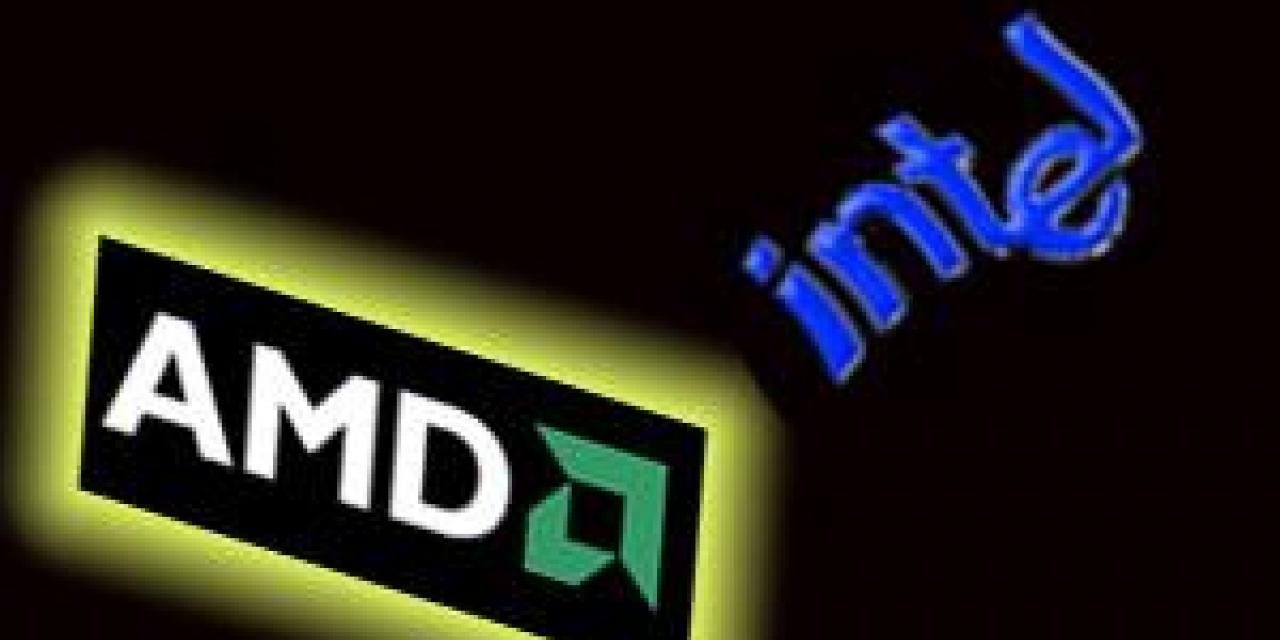
AMD has launched an attack on rival Intel in a lawsuit that accuses the chip giant of using underworld tactics and implicates a variety of companies, including Dell, Sony and Hewlett-Packard.
AMD claims that a total of 38 companies were strong-armed into buying Intel rather than AMD chips. The company describes the tactics as bullying and also claims that they affected distributors and retailers like Office Depot and Fry's.
AMD is seeking billions of dollars in damages in the case, which some experts say could take longer to litigate and become even more complex than Microsoft's antitrust saga.
We have a responsibility to stand up to the industry's Goliath, said Tom McCoy, AMD's chief administrative officer. We have a responsibility to the entire industry to win and we will win because we stand on the truth of how this industry suffers under the yoke of monopoly.
Intel has strongly denied AMD's allegations and a spokesman claimed the company will respond appropriately. Intel chips currently hold an 80 per cent share of the Windows PC worldwide market by unit volume and 90 per cent by revenue.
Intel believes in competing fairly and believes consumers are benefiting from this vigorous competition, said the Intel spokesman. AMD has chosen, once again, to complain to a court about Intel's success, with a legal case full of excuses and speculation.
The suit submitted by AMD is 48 pages long and includes a variety of arguments against Intel that we have already heard but also has quite a few new claims.
In the document AMD compares Intel to a cocaine dealer, hooking Toshiba on its financial inducements of USD 25-30 million a quarter. Elsewhere, an unnamed Gateway official is quoted as saying threats from Intel beat the company into guacamole.
Former Compaq Computer Corp. CEO Michael Capellas is quoted as saying he had a gun to his head when he stopped buying AMD chips because Intel threatened to withhold needed parts for servers.
AMD also claims that Intel has done its utmost to interfere with two recent AMD product launches by threatening partner companies such as Taiwanese Acer, Lenovo, NEC and HP.
In the Acer case, AMD claims, that then-Intel CEO Craig Barrett had a heart-to-heart with his Acer counterpart worthy of a scene in The Untouchables. During that meeting Mr. Barret, it is claimed, was heard uttering in a menacing tone that Acer would suffer severe consequences if it participated in the launch of the Athlon 64 chip. At the same time, about USD 20 million in market development funds from Intel was delayed.
The Acer case seems to be an important part of the suit as the AMD document claims that Acer's president subsequently reported that the only thing different about Intel's threats was the messenger -- they were usually done by lower ranking managers,' not Intel's CEO...
The suit comes at a time when AMD seems to have gained the upper hand as far as technology is concerned but this is a breakthrough which has brought the company no significant market gains and a Q1 report of financial losses.
Earlier this year, Japanese regulators found Intel guilty of having violated antitrust rules, in a case believed to have been triggered by AMD. Intel did eventually agree to halt some practices the regulators found objectionable but still claimed it had done nothing wrong. The European Commission also has said it is pursuing an investigation against Intel.
The U.S. Fair Trade Commission has already investigated Intel but in 2000 had to close the case as no evidence had been found to suggest of any wrongdoing in the company's practices.
One hurdle facing AMD is that the company will have to prove Intel is a monopoly, even though the mere existence of AMD may be used to challenge the claims. Just as in the Japanese case, it is suspected that AMD filed the lawsuit in order to get the attention of the U.S. government, in the hope that it will pursue the case further as it did in the Microsoft antitrust case.
A big part of the suit will rely on the attitude of the companies claimed to have been mistreated by Intel. They will have to confirm the claims made by AMD in the lawsuit. There are currently two lines of thinking regarding the companies involved. One claims that AMD musty have already confirmed the cooperation of a few of these companies while the other suggests that companies such as Dell and Hewlett-Packard are too big to be threatened by Intel.
The companies involved, except for AMD and Intel, have refused to comment on the lawsuit while Charles Diamond, an AMD lawyer claims that ...we will crack open their files through the subpoena process and we have already started that process...








